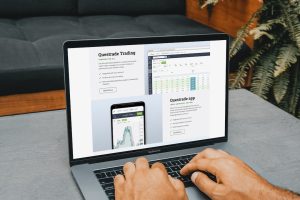The world of finance is complex and diverse, with a wide range of investment tools available for investors to choose from. Among the various investment options available, equities, options, futures, and forex are some of the most commonly used by traders and investors.
Equities, also known as stocks, are ownership shares in a corporation. When you buy a share of stock, you become a part owner in the company, entitled to a portion of its profits and assets. The value of a stock is determined by the supply and demand of the market, and can fluctuate based on a variety of factors such as company performance, economic indicators, and industry trends.
One of the benefits of investing in equities is the potential for long-term growth and income. Stocks can appreciate in value over time, and many companies pay dividends to their shareholders. However, equities also involve a higher level of risk than other investment options, as the value of a stock can decline rapidly if the company performs poorly or the market experiences a downturn.
Options are a type of financial contract that give the holder the right, but not the obligation, to buy or sell an underlying asset at a specified price on or before a certain date. The underlying asset can be a stock, index, currency, or commodity.
There are two types of options: call options and put options. A call option gives the holder the right to buy the underlying asset, while a put option gives the holder the right to sell the underlying asset.
Options can be used for a variety of purposes, such as hedging against potential losses or generating income through the sale of options. However, options also involve a higher level of risk than other investment options, as the value of an option can fluctuate rapidly and can expire worthless if the underlying asset does not move in the anticipated direction.
Futures are similar to options in that they are a financial contract that obligates the buyer to purchase an underlying asset at a specified price on a future date. However, unlike options, futures contracts are binding and must be fulfilled on the specified date.
Futures can be used for a variety of purposes, such as hedging against price fluctuations or speculating on the future price of an asset. Futures can be traded on a variety of underlying assets, such as commodities, currencies, and indices.
Like options, futures also involve a higher level of risk than other investment options, as the value of a futures contract can fluctuate rapidly and can result in significant losses if the market moves in an unexpected direction.
Forex, short for foreign exchange, is the market in which currencies are traded. The forex market is the largest and most liquid market in the world, with an average daily trading volume of over $5 trillion.
Forex trading involves buying and selling currencies in pairs, such as the euro/US dollar or the US dollar/Japanese yen. The value of a currency pair is determined by the supply and demand of the market, and can be affected by a variety of factors such as economic indicators, geopolitical events, and central bank policies.
Forex trading can be used for a variety of purposes, such as hedging against currency risk or speculating on the future movements of currency pairs. However, forex trading also involves a higher level of risk than other investment options, as currency prices can fluctuate rapidly and can result in significant losses if the market moves in an unexpected direction.
In conclusion, equities, options, futures, and forex are all investment options that offer potential for growth and income, but also involve a higher level of risk than other investment options. It is important for investors to carefully consider their investment goals, risk tolerance, and financial situation before investing in these markets.





